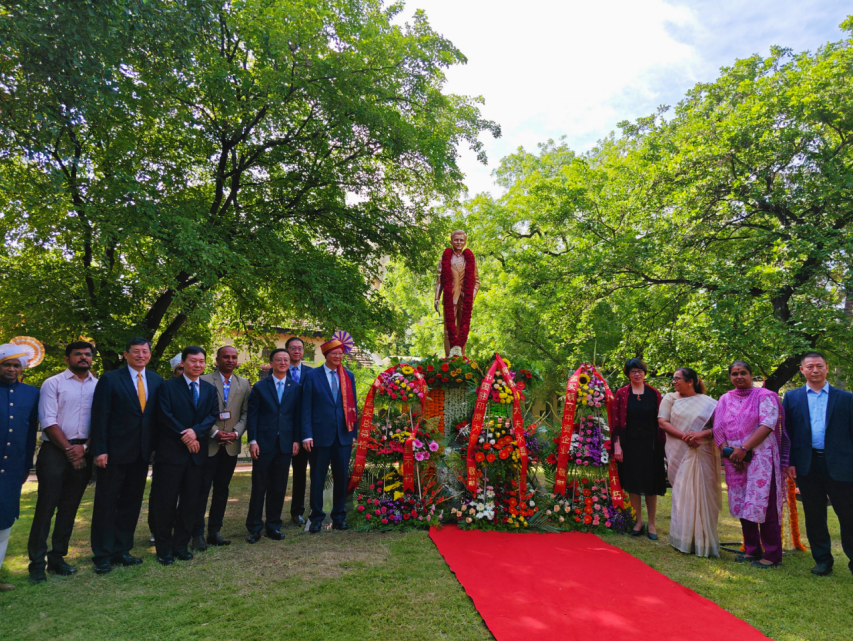Young Indians encouraged to link with China, fulfil Dr Kotnis' wish


What Dr Dwarkanath Shantaram Kotnis wished to see must be a China-India relationship moving forward along the sound and stable track, said Chinese Ambassador to India Xu Feihong on July 10, who encouraged young Indians to tap their role of linking two countries.
Xu unveiled a bronze statue of Dr Kotnis at the Camp No 1 High School of Solapur, India's western Maharashtra state on July 10.
Eighty-six years ago, Dr.?Kotnis?went?to China to support the Chinese People's War of Resistance Against Japanese Aggression (1931-45). "The Chinese people never forget Dr?Kotnis, and we have been doing things for the development of Dr?Kotnis' hometown for such a long time," Xu said.
Born in 1910 in Solapur, Dr. Kotnis was part of a five-member Indian medical team that traveled to China in 1938. The legendary Indian physician had sacrificed his life while working in China and attending to Chinese soldiers during the war against Japanese aggression. Kotnis, however, died unexpectedly at the age of 32 in China on Dec 8, 1942, due to adverse weather conditions and relentless work.
"He saved countless Chinese lives with his excellent medical skills and trained many Chinese medical personnel. A friend in need is a friend indeed," Xu added.
Xu's visit to Solapur was his first outside Delhi since being appointed as the Chinese Ambassador to India in May this year. In Solapur, Xu paid his respects at the Dr Dwarkanath Kotnis Memorial and laid a wreath at the statue of Dr Kotnis. Chinese Consul General in Mumbai Kong Xianhua attended the event.
At Dr. Kotnis' former residence, Xu read the elegiac couplet written by late Chairman Mao Zedong. Xu also interacted with Dr. Kotnis' relatives and Rajendra Jadhav, chairman of the Dr. Kotnis Memorial Committee.
































